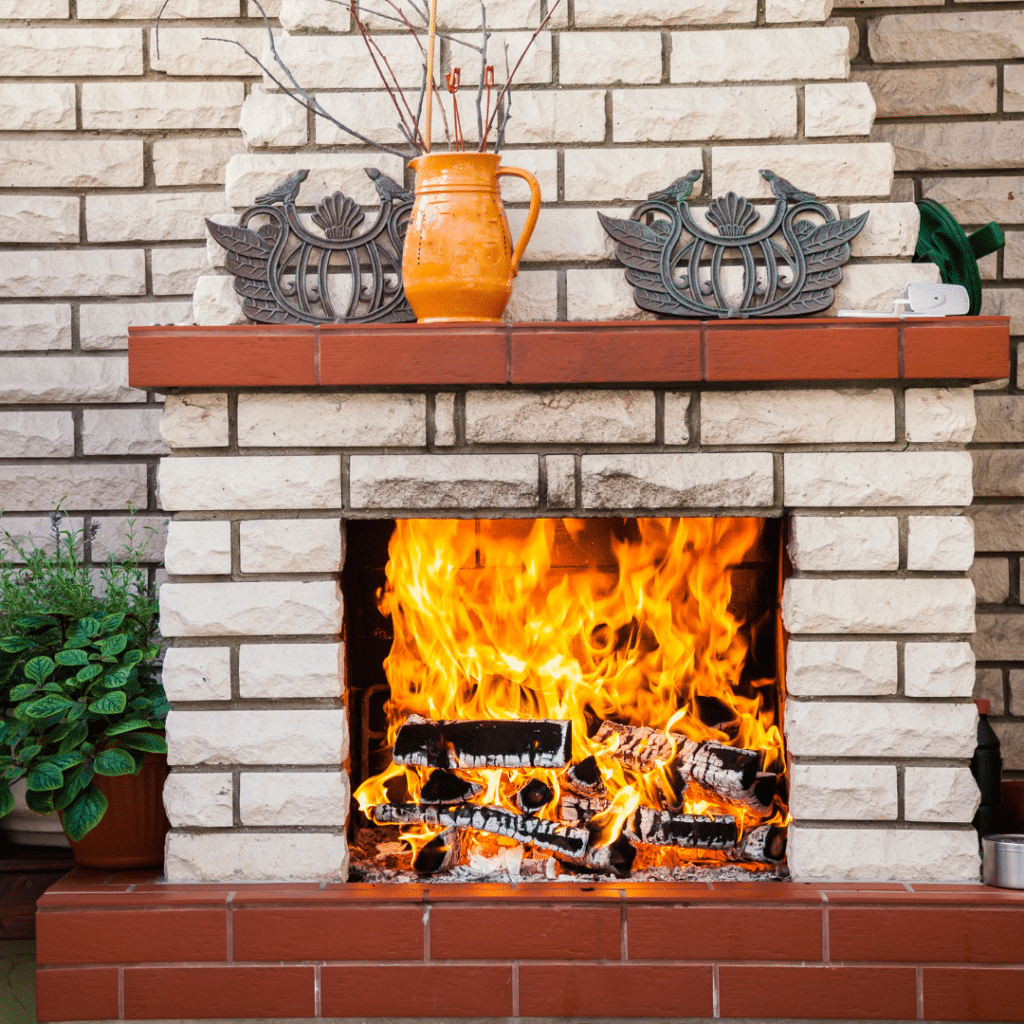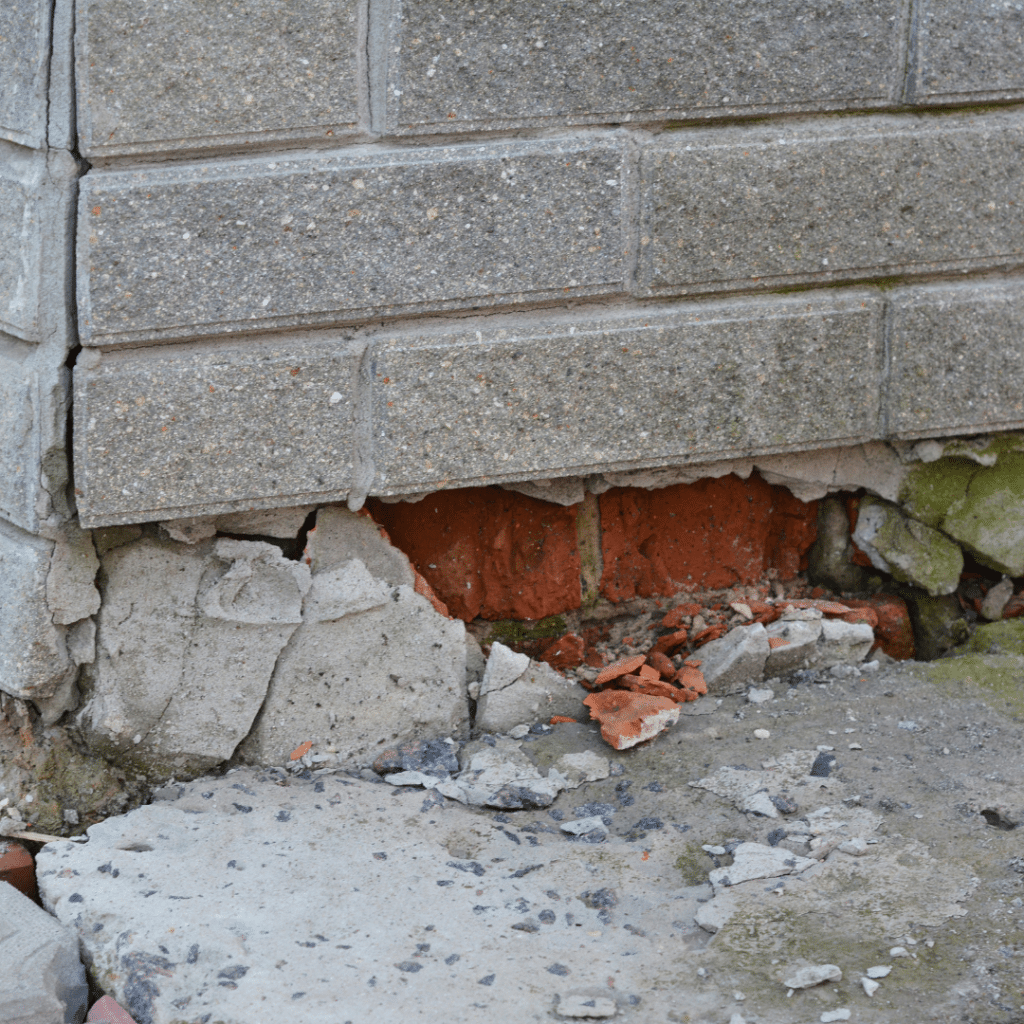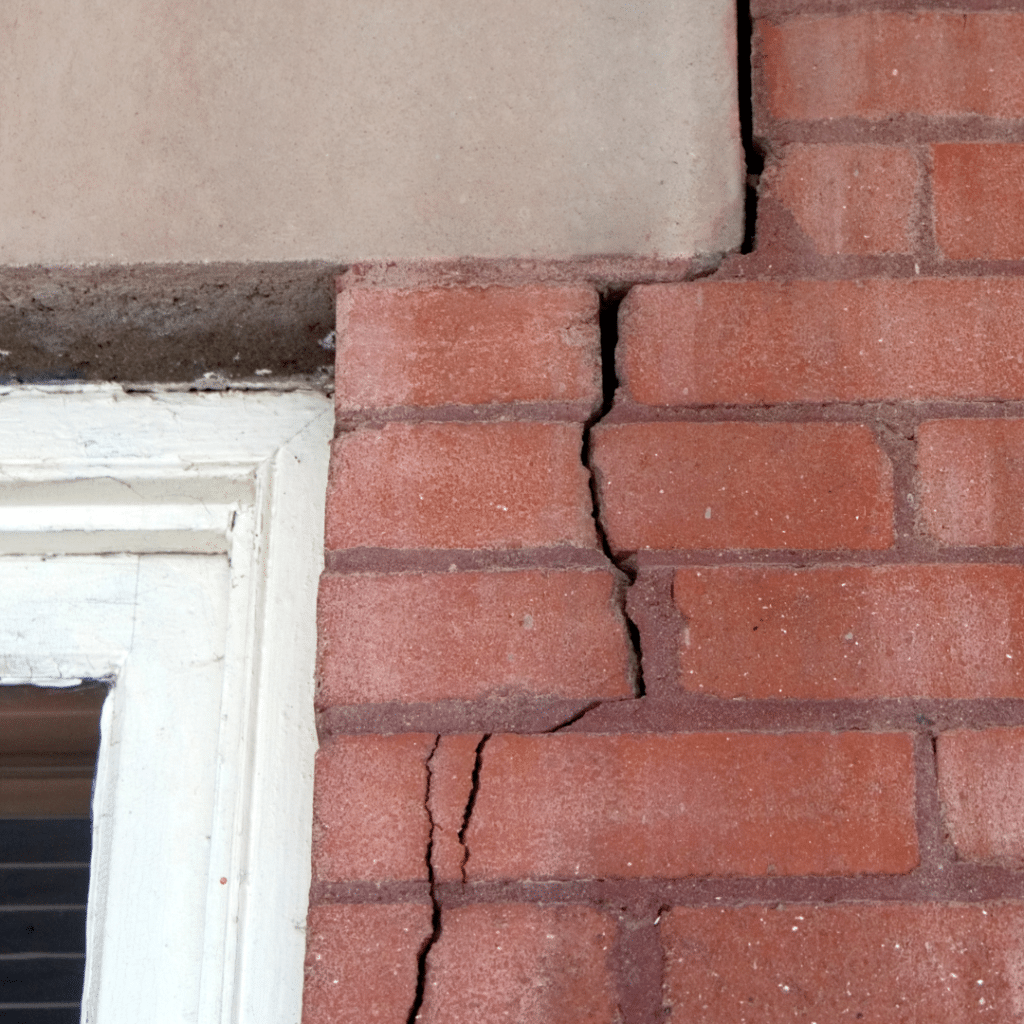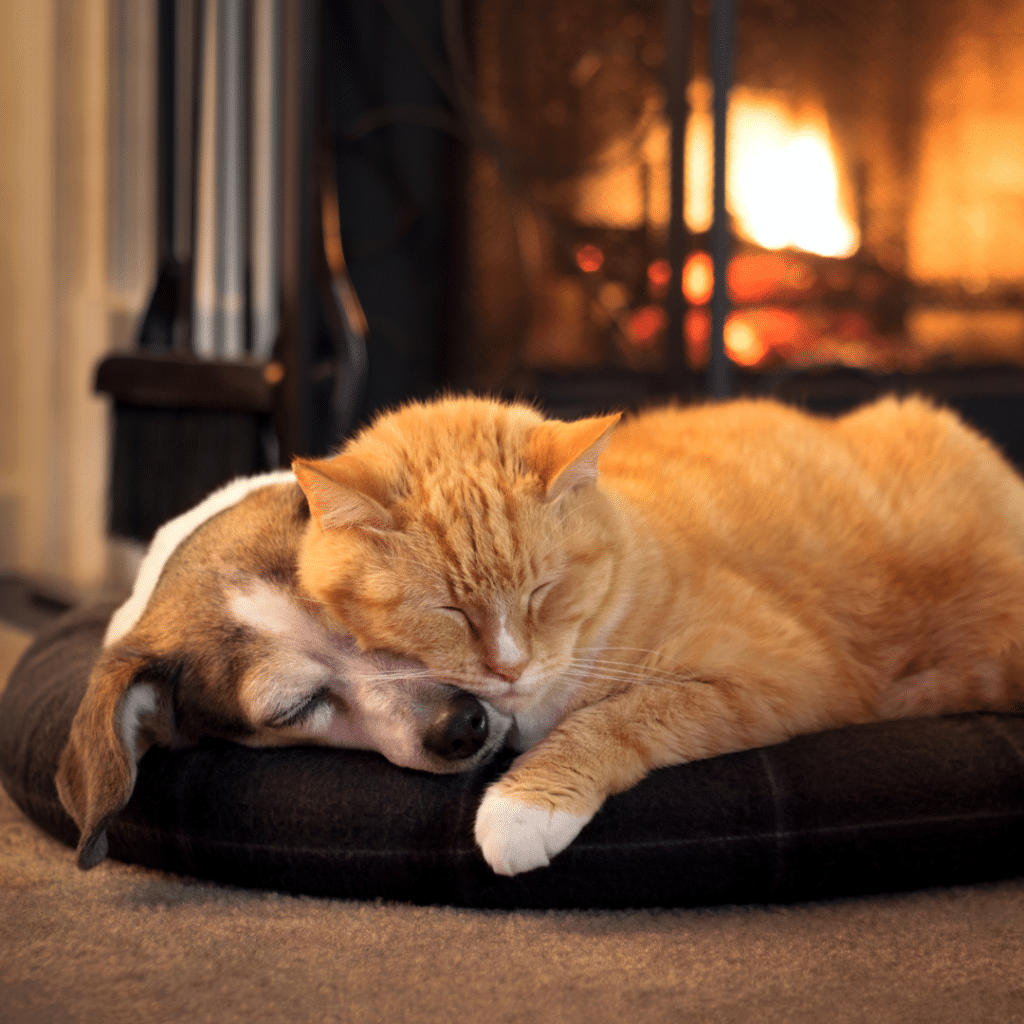
A chimney is an essential part of any home with a fireplace or wood-burning stove. It plays a crucial role in the ventilation system, allowing smoke, gases, and other byproducts of combustion to escape from the house safely. However, a chimney that is not maintained properly can become a significant hazard, posing a fire risk or exposing occupants to toxic fumes. Therefore, regular chimney maintenance is critical to keep your family safe and ensure the longevity of your chimney. In this article, we will explore some common chimney maintenance tips that homeowners can follow to keep their chimneys in good condition.
Inspect Your Chimney Annually

An annual inspection by a certified chimney professional is crucial for maintaining the safety and functionality of your chimney. A qualified chimney sweep will conduct a thorough evaluation of the chimney structure, including the flue, chimney cap, and chimney crown, to identify any signs of damage, blockages, or creosote buildup. They can also assess the condition of the fireplace or wood stove, checking for proper ventilation and fuel combustion.
If any issues are detected during the inspection, the chimney professional can recommend the necessary repairs or cleaning to prevent further damage or potential hazards. This can range from minor repairs, such as fixing cracks or replacing worn-out parts, to more significant renovations, such as rebuilding a damaged chimney or relining the flue.
Overall, an annual chimney inspection by a certified chimney professional is a proactive step that homeowners can take to ensure the safety and efficiency of their chimney system. By identifying and addressing any potential issues early on, homeowners can avoid costly repairs and, more importantly, prevent dangerous chimney fires or carbon monoxide poisoning.
Watch for Signs of Damage

It’s essential to keep an eye out for any signs of damage to your chimney throughout the year. Here are some common signs of chimney damage that homeowners should watch out for:
- Crumbling mortar: If you notice any crumbling or missing mortar between the bricks or stones of your chimney, it can indicate that the structure is deteriorating.
- Loose bricks: Loose or missing bricks can cause a chimney to become unstable and pose a safety hazard.
- Rust: Rust on the chimney cap or any other metal components of the chimney can indicate water damage or deterioration.
- Creosote buildup: A thick, sticky substance that accumulates on the inner walls of the chimney, creosote is highly flammable and can increase the risk of a chimney fire.
If you notice any of these signs or any other indications of damage or wear and tear on your chimney, it’s crucial to call a certified chimney professional immediately. Ignoring chimney damage can lead to more extensive and costly repairs down the line, and it can also put your family’s safety at risk. A professional chimney inspection and repair can address the problem promptly and ensure that your chimney is functioning safely and efficiently.
Clean Your Chimney Regularly

The National Fire Protection Association (NFPA) recommends having your chimney cleaned at least once a year to prevent the buildup of creosote and soot, which can be a fire hazard. Creosote is a highly flammable substance that can accumulate on the inner walls of a chimney as a byproduct of burning wood. Over time, creosote can thicken and harden, increasing the risk of a chimney fire.
A certified chimney sweep can remove the built-up creosote and soot through a process known as chimney cleaning or chimney sweeping. This involves using specialized tools to brush and scrape the inside of the chimney, dislodging any creosote or soot that has accumulated. The sweep will also check for any other issues, such as blockages or damage, that may be affecting the chimney’s performance.
Regular chimney cleaning can help prevent chimney fires and ensure that your chimney is functioning safely and efficiently. It’s important to note that the frequency of chimney cleaning may vary depending on several factors, such as the frequency of use, the type of fuel burned, and the age and condition of the chimney. It’s always best to consult with a certified chimney professional to determine the appropriate cleaning schedule for your specific chimney.
Install a Chimney Cap

a chimney cap is an essential component of a chimney system that can provide several benefits. It is typically made of metal or other durable materials and sits on top of the chimney, covering the flue opening.
Here are some ways in which a chimney cap can be beneficial:
- Keeps out animals: A chimney cap can prevent animals such as birds, squirrels, and raccoons from entering the chimney and potentially getting trapped or causing damage.
- Keeps out water: Water can enter the chimney through the flue, causing damage to the masonry or metal components. A chimney cap with a drip edge can help redirect water away from the chimney, reducing the risk of water damage.
- Reduces debris buildup: A chimney cap can also prevent debris such as leaves, twigs, and other debris from entering the chimney and potentially causing a blockage.
- Prevents downdrafts: In windy conditions, a chimney cap can help prevent downdrafts from blowing smoke or other combustion byproducts back into the home.
Overall, installing a chimney cap can help extend the life of your chimney and reduce the risk of water damage, blockages, or other issues that can affect its performance. It’s essential to choose a high-quality chimney cap that is appropriately sized and installed by a certified chimney professional to ensure optimal performance.
Repair any Loose Mortar or Bricks

Loose mortar and bricks can allow water to seep into the chimney, causing structural damage and potentially leading to costly repairs. Over time, exposure to water can cause the mortar to deteriorate, leading to gaps and spaces between the bricks. This can allow water to penetrate the chimney’s interior, potentially causing damage to the masonry or other components.
If you notice any loose mortar or bricks in your chimney, it’s essential to have a certified chimney professional inspect and repair the damage promptly. The chimney pro can assess the extent of the damage and determine the appropriate repair method, such as repointing or rebuilding the chimney. Repointing involves removing the damaged mortar and replacing it with fresh mortar, while rebuilding the chimney may be necessary if the damage is more extensive.
Repairing any loose masonry is crucial to prevent water damage and maintain the structural integrity of the chimney. It’s also essential to address the underlying cause of the damage, such as water infiltration, to prevent future issues. A certified chimney professional can provide recommendations on how to prevent water from entering the chimney, such as installing a chimney cap or repairing any leaks in the roof or flashing.
Overall, having a chimney pro inspect and repair any loose masonry is a proactive step that homeowners can take to prevent costly repairs and ensure the safety and longevity of their chimney system.
Conclusion

Regular chimney maintenance is crucial to ensure the safety, efficiency, and longevity of your chimney system. By following some common chimney maintenance tips, homeowners can prevent potential hazards and expensive repairs down the line. Here are some key takeaways:
- Schedule an annual chimney inspection by a certified chimney professional to identify any potential issues and recommend necessary repairs or cleaning.
- Watch out for signs of damage, such as crumbling mortar, loose bricks, rust, and creosote buildup, and call a chimney pro immediately to inspect and repair the damage.
- Have your chimney cleaned at least once a year to prevent the buildup of creosote and soot, which can be a fire hazard.
- Install a chimney cap to keep out animals, water, and debris, and prevent downdrafts.
- Address any loose masonry promptly to prevent water damage and maintain the structural integrity of the chimney.
Overall, taking care of your chimney is essential for the safety and comfort of your home. By following these common chimney maintenance tips and working with a certified chimney professional, homeowners can keep their chimneys in good condition and enjoy the warmth and ambiance of their fireplace or wood stove with peace of mind.
